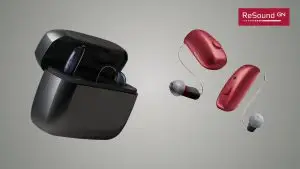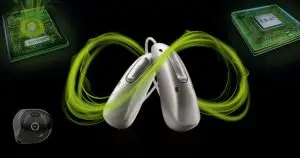
Designed to enhance speech clarity while minimizing background noise, the new ReSound Vivia hearing aids utilize Artificial Intelligence (AI) technology in an attempt to create a more natural and immersive ...

Phonak recently introduced the Phonak Infinio Sphere hearing aid, a new device featuring the industry’s first dedicated AI chip, DEEPSONIC™. This advanced artificial intelligence (AI) technology is designed to separate ...

“Cosco” Hearing Aids?! The Phonetic Quirk Behind “Cosco” Instead of “Costco”: Unveiling the Spelling Mystery Have you ever noticed that some people often spell “Costco” as “Cosco”? It originates from ...

Over-The-Counter hearing aids are available now and there will be more available soon. I have written a couple of blogs about over-the-counter (OTC) hearing aids. And we have talked about ...
Powered By SinglerDesign.com